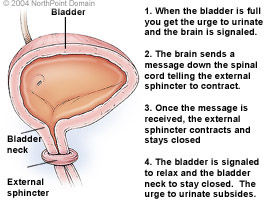Areas of Expertise

Urinary Tract Infection
A urinary tract infection(UTI) are common ailments which can caused annoying and debilitating problem. Dr. Perlow is committed to treating your urinary infection and minimizing the chance for reoccurrence.
A bladder infection, or cystitis, is a condition in which bacteria enter and grow within the bladder.
Women are more prone than men to bladder infections because of the relatively short distance between a woman’s urethra and her bladder. Bacteria travel easily to the bladder, and because the opening of the urethra lies close to the vagina and anus, the urethra is vulnerable to contamination from vaginal secretions or feces.

What are the symptoms?
When bacteria overwhelm the bladder, a person may experience one or more of the following symptoms:
-
-
- Burning or painful urination;
-
-
-
- Frequent or urgent urination;
-
-
-
- Voiding small amounts of urine;
-
-
-
- Frequent nighttime urination;
-
-
-
- Low back pain;
-
-
-
- Pain above the pelvic bone;
-
-
-
- Cloudy urine;
-
-
-
- Blood in the urine, in about 30 percent of people;
-
-
-
- Fever and chills, which may mean the infection has moved into the kidneys; or
-
-
-
- Occasionally, foul-smelling urine.
-
Causes and risk factors
Normally, the bladder and other organs of the urinary tract are sterile and highly resistant to bacterial growth and infection. A number of factors, however, can cause bacteria to enter the bladder and rapidly grow, including:
-
-
- Sexual activity in women;
-
-
-
- Spermicide use during intercourse in women;
-
-
-
- Poorly fitting diaphragms in women;
-
-
-
- Hormonal changes during menopause that decrease lubrication of the vagina and urethra;
-
-
-
- An enlarged prostate in men;
-
-
-
- A drop in a man’s sperm production as he ages, because sperm inhibits bacterial growth; and
-
-
-
- Any condition or disease that compromises the immune system.
-
While a number of organisms can cause urinary tract infections, the most common are those that are normally found in the intestinal tract, such as Escherichia coli.
Diagnosis
To diagnose a bladder infection, a physician may order a urinalysis or a cystoscopy, which is the insertion of a lighted instrument into the urinary tract.
Treatment approach
If urine tests reveal high bacteria levels, antibiotics are prescribed. Antibiotic treatment for men usually consists of a 10- to 14-day course; women undergo a similar regimen for about three days. Women with diabetes, women who have a history of urinary infections, or women who have experienced symptoms for more than one week are immediately started on a longer antibiotic regimen. If a woman is pregnant, a physician will prescribe antibiotics that are safe for a fetus.
